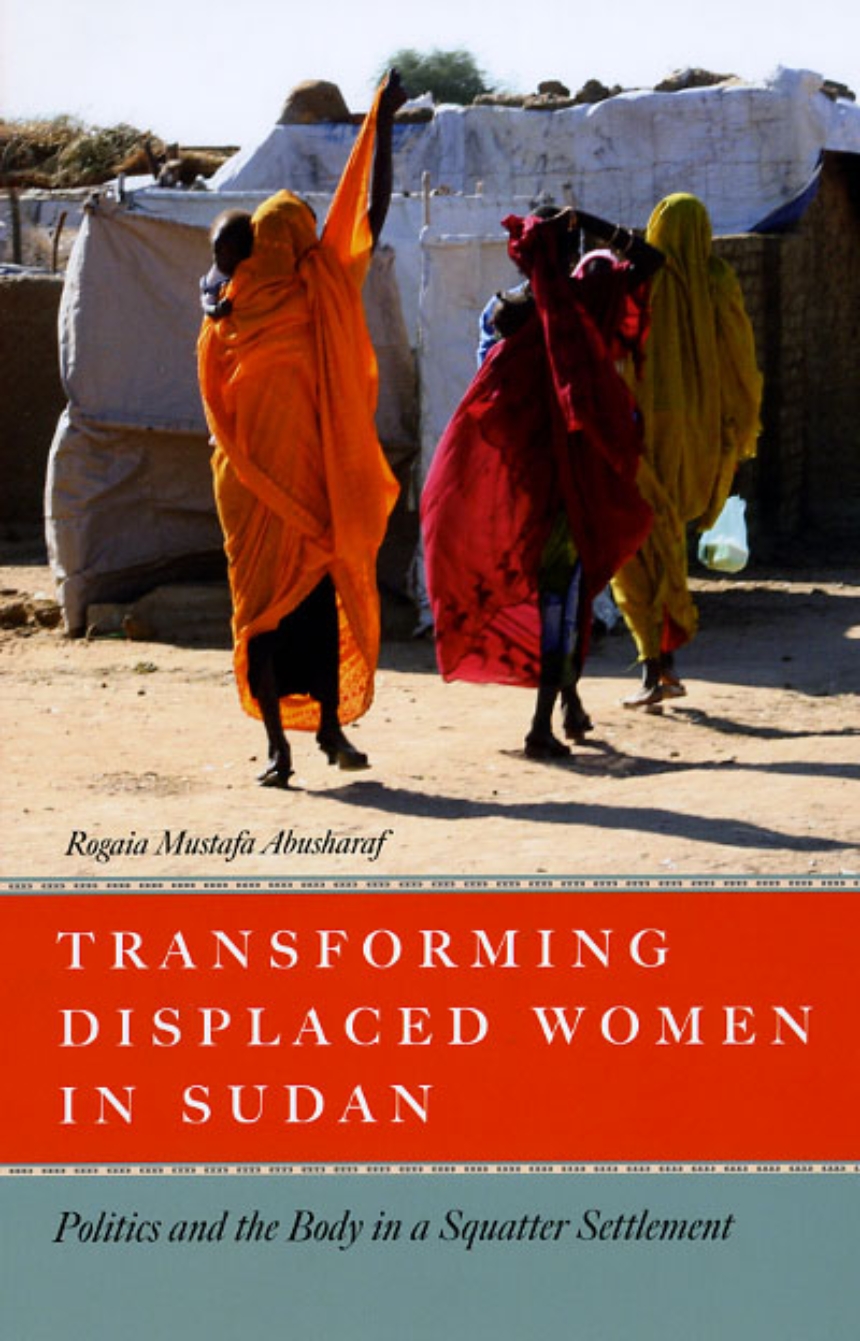Transforming Displaced Women in Sudan
Politics and the Body in a Squatter Settlement
Transforming Displaced Women in Sudan
Politics and the Body in a Squatter Settlement
Over twenty years of civil war in predominantly Christian Southern Sudan has forced countless people from their homes. Transforming Displaced Women in Sudan examines the lives of women who have forged a new community in a shantytown on the outskirts of Khartoum, the largely Muslim, heavily Arabized capital in the north of the country.
Sudanese-born anthropologist Rogaia Mustafa Abusharaf delivers a rich ethnography of this squatter settlement based on personal interviews with displaced women and careful observation of the various strategies they adopt to reconstruct their lives and livelihoods. Her findings debunk the myth that these settlements are utterly abject, and instead she discovers a dynamic culture where many women play an active role in fighting for peace and social change. Abusharaf also examines the way women’s bodies are politicized by their displacement, analyzing issues such as religious conversion, marriage, and female circumcision.
An urgent dispatch from the ongoing humanitarian crisis in northeastern Africa, Transforming Displaced Women in Sudan will be essential for anyone concerned with the interrelated consequences of war, forced migration, and gender inequality.
208 pages | 18 halftones | 6 x 9 | © 2009
Anthropology: Cultural and Social Anthropology
Women's Studies:
Reviews
Table of Contents
Acknowledgments
Introduction Through the Eyes of the Displaced
One Dissent Historicized
Two Becoming Displaced
Three Gendered Rituals
Four Negotiating Peace
Epilogue “This Is My Country”
Appendix A Primary Informants
Appendix B Camps and Shantytowns in Greater Khartoum, Sudan
Appendix C Profile of Women in Izzbba
Notes
References
IndexAwards
Women's Caucus of the African Studies Association: Aidoo-Snyder Prize
Finalist
